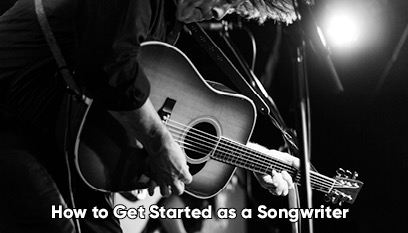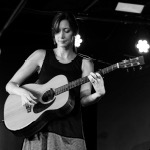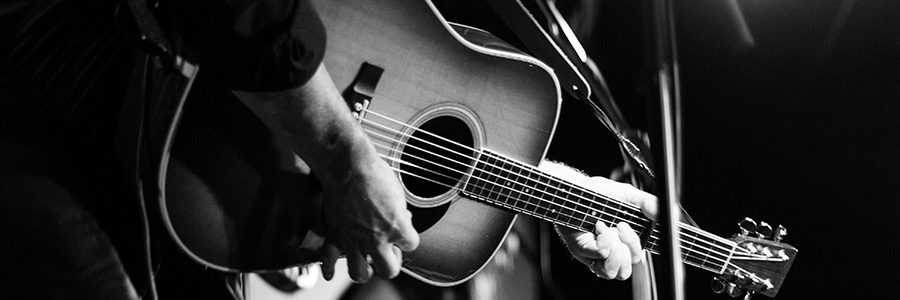
Watch any rock documentary and you’ll see a theme emerge somewhere early in the band’s career: If we want to make it, we gotta start writing our own songs!
But how exactly do you get started with songwriting? Should you write the lyrics or the melody first? If you’re in a band already, will one person write everyone’s parts, or is it a group effort? Should you wait until you’re inspired, or try to push through creative blocks?
The answers are not as obvious as they may seem. Many hugely successful bands, like the Rolling Stones, admit that they struggled with songwriting at the beginning. For the most part, anyone that says that it has always been easy is either a prodigy or a liar.
To get some songwriting inspiration to share with you all, I convened another Sweet Guitar Tones panel of experts.
All of these people are wonderful songwriters. Many of them were key to the success of Music Mentors, a program I ran for several years at the University of New Hampshire. Music Mentors brought in professionals with real-world experience in the music business to share their experiences and build mentoring relationships with college students. What follows is a Q&A that is not unlike a typical session of Music Mentors (just with fewer tangents).
Our panel hails from all over New England. The members’ ages span from early 30s to early 50s, and they all write and perform in a variety of musical genres. Most of them began songwriting at approximately 14 years old, and many say they began to really have something to say with their songs in their early to mid-20s.
Thank you to Spencer Albee, Andrew Blowen, Patrick Boutwell, Courtney Brocks, Will Dailey, Martin England, Elyssa Margolin, Mike Moore, Jon Nolan, Reverend Todd Seely, and Joe Young for sharing their thoughts on songwriting.
SGT: So let’s talk process. At its most basic level, what is your songwriting process? For example, do you write around a phrase that you like or do you do melody first?
Brocks: I think most of the time it starts with a phrase. I tend to write out lyrics first, then noodle around to find a melody and chord structure, and then change the lyrics, if need be, to fit the melodic phrasing.
Albee: Sometimes it’s a phrase, sometimes it’s a melody. Other times it’s a vibe or if you’re lucky, the whole tune arrives in your inbox all at once.
Seely: I get a lot of one-word or single-phrase ideas. I’ll usually write those down in a little notebook I keep handy and then sit down later and try to build something around them.
Dailey: [My] process is to try to let chaos reign!
Young: I’ve never had much of a process. It generally comes in waves. I’ll go months without writing a thing and then pen a few songs in very short order. I generally start with a chord progression and if some lyrical inspiration strikes then I ride it out until I’m done.
Ott: There is no set process. Sometimes it is just a title I have then I write around the title. I do tend to work on verses first. I feel that it is important to have a great hook in a verse not just the chorus.
Boutwell: Sometimes I will be messing around on the guitar in a new tuning and come up with something that sounds cool and inspires me to write more; other times, music will pop into my head when I least expect it and I’ll try to remember it until I can get to a recording device and record a short sketch of what I was thinking. I’d read a long time ago that Kevin Shields of My Bloody Valentine would always sing a melody to what he was writing, just to have a clearer direction for the song, and I’ve since employed that method when I write, and it has made finishing songs and writing lyrics so much easier for me.
England: Some stuff just comes to the surface, and if anything, I’ve learned they’ll usually present themselves at inopportune times, like while I’m driving or at soundcheck, when I don’t really have time to write. The beauty of smartphones is they allow us to capture tiny moments and ideas without being too cumbersome.
Moore: Music is first. It’s a feeling more than anything so the music usually is first and I react vocally to it, trying to emote over a riff or chord progression. Sometimes I’ll say a word that jives with the feeling of the skeleton piece and it builds from there, like following a light through a winding tunnel. You have to feel-think your way through.
Nolan: Basically just futz around until I find something interesting rhythmically, texturally – a progression that sounds good or interesting or evocative. I’m searching for something that makes me feel, and then I back my way into “what is it that I’m feeling?” Usually at this point I’m sort of singing in a non-English I don’t know what to call it, maybe some sort of fake pseudo something or other, which helps me find the feel and pacing and phrasing, and ultimately melody.
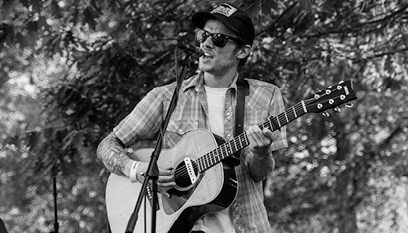
SGT: Do you prefer to write alone or with a partner / group?
Moore: Lyrically I prefer to write alone. I think that stems from me mostly writing from my own personal experiences. Musically I love collaborating. Hearing what my band mates bring to a song via instrumentation and vocal harmonies is the thing I look forward to the most.
Seely: Historically, I’ve almost always written alone and have preferred it that way. However, with my band Bigfoot, I have a found a great writing partner in our bassist, Jeff Childers. We have been on a really solid songwriting kick lately. Lyrics are still troublesome, but the music we’re writing is very cool and it’s been a blast working together. It has come very easily to us.
Nolan: Alone. Cliff Murphy, my good friend and Say Zuzu co-frontman, and I wrote a few songs together, but I think we both felt the experience to be too vulnerable to write anything decent together. For me because music has always been so deeply connected to my own personal emotional experience, I find it really hard to write with somebody else. So, I write alone. That said, songs have been rearranged buy the bands that I’ve played in, and certainly in the Say Zuzu years Cliff and I developed a really great ability to offer notes and thoughts for each other that informed and often changed the songs, but the bones of the song I write alone.
Brocks: Writing with a group is a wonderful exercise, and it probably makes for the best songs. I have way less experience with that than with writing alone, so I would say that writing alone is still preferable and more comfortable.
England: I’ve almost always written while I’m alone, but I won’t say it’s my preference, it’s just the nature of the beast. I spend far more time practicing and playing alone than I do with my band.
Boutwell: I like collaborating with other people from time to time, but I primarily feel the most comfortable writing by myself.
Ott: I have done both and I like doing both. I guess I am a bit of a control freak, so I end up biting my tongue when writing with another person. You do learn a lot about songwriting and yourself when collaborating.
Blowen: I really enjoy both. There’s a certain purity and focus that happens in a song written alone. However, I’ve been really lucky to write with incredibly talented people over the years. I like approaching bandmates with an idea seeing where it goes. Oftentimes, a writer with a different perspective can make a song much more compelling. Ultimately, with the right group of musicians, I prefer write as a group.
Dailey: Depends on the day. All of the above, including alone while in a group. Example: try writing a song at a party.
Albee: For the past decade, I’ve written primarily by myself, which I enjoy. Occasionally I get the chance to write with a great songwriting partner, which I also enjoy. A big, fat, juicy, ripe tomato from the garden is just about the best thing in the world. A pink, mealy, tough tomato is just about the worst thing in the world. The same can be said for songwriting partnerships.
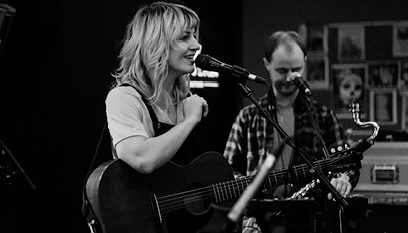
SGT: Several of you on the panel are the primary songwriters of your group, or have served in that role in other groups. In this role do you usually write all of the parts by yourself, or do you present the group with the structure of the song and have the rest of the group fill in their parts?
Boutwell: I used to orchestrate songs to death, but I’m trying to be more open these days about people’s parts. [Lately] I’ve been trying to finish the bones of a song and then have the rest of the group figure it out. It is a bit of a balancing act, though, because demoing is a huge part of my writing process, so it has mostly been a situation of trying not to get too precious about parts on a demo, which can be tough. It is an evolving process, for sure.
England: I’ll put together the bones of a song, and the rest of my bandmates will help arrange and make the song interesting. We work hard on harmonies, and try to make each song special by inserting little moments of magic in each. I love how my band pushes me to take a song to the next level. A good example is ‘Unloaded’ off Dawn Chorus. When I first wrote the song, I was head over heels in love with it, but when I showed it to the band, they were nonplussed. I was bound and determined to make it work, so I deconstructed it and rebuilt it from the bottom up.
Margolin: I usually bring a song 3/4 baked to the full band (River Sister) and have them finish the baking and add some amazing icing too. I think the River Sister process is a good example of collaborative songwriting to ensure the tune brings out the band’s particular sound. When we “riversisterize” a song, we look to fellow vocalist Stefanie Guzikowski to come up with interesting harmonies and vocal textures and we look to the River Sister Misters, PJ Donahue and Nate Therrien, to provide the rhythms. It’s through this process that that the tune comes through as a song generated by a band, rather than a band backing a singer-songwriter.
Moore: If you’re in a band, the band members should come up with their parts in service of the song. Rarely do I have to say anything to my bassist or drummer. If anything it’s showing them what I’m playing and describing the vibe I want in as simplest a manner as possible.
Nolan: The best situation is when you are in a band with a bunch of people who are on the same page and on the same wavelength musically, and they just get where you’re coming from and intuitively feel where the song should go.
Ott: When working with a band I find it advantageous to let the band give input into song arraignments and ideas. The band then becomes more vested in the song and it will sound much better and have really great energy and vibe to it.
Dailey: Little of both. But make sure to be the worst person in your band if you are writing the songs. The songs and recordings will thank you later.
Albee: Depends on the song and the group. My first band employed a democratic songwriting process, which meant there were 2.5 of us contributing material and 4.5 of us “editing” (see: saying no). [These days] unless I have a specific part in mind, the players in all the bands I’ve been in come up with their own parts, for the most part. That’s why you play with other people, right? Because their music voice shapes the song. The most sought-after tools for any great songwriter (not calling myself great) are great performers to realize their material, no?
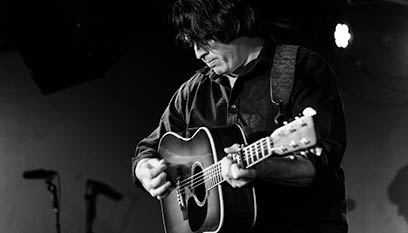
SGT: Is there a difference in the way you approach a song that you intend to perform solo versus a song you intend to perform with a band?
Albee: A great song can stand up even when reduced to its most basic elements. Everything else is just an exercise in production, and though may be fun/awesome or relevant to a moment, will fade over time.
Dailey: Not really. My main focus is on the song and what it needs and what it needs during recording. Live, the songs have to find their own way, and sometimes songs that work on recording don’t work as well live and visa versa.
Boutwell: Every once in a while, there will be a song that either is dying for a band to play it or needs to be stripped down to its essence.
Margolin: Most definitely. The more I write for River Sister, the more I make room for the band’s contributions. I’ve also notice in the last two years that we’ve been writing together that there are now thematic trends, in addition to a growing trust and a thirst for more risk and interplay.
Moore: Sometimes I get improvisational ideas when playing solo-acoustic I can’t explore with the band because I’ll come up with chord progressions on the spot or rhythmic ideas the band wouldn’t follow in the course of a jam.
England: Yes. When I’m playing solo, I take a more deliberate approach to the tempos. They tend to be slower and focus more on the words than the musical aspects of each song.
Blowen: I tend to play as little as possible while still supporting the vocal melody and filling in any holes. There’s a certain freedom in playing solo, but it’s also much more nerve-wracking. It’s kind of like zooming in on a photo. The details become more important and nuance is everything.
Nolan: One of the best principles that I’ve tried to employ, particularly in the solo realm, is the idea that when you are playing solo, being quiet is more powerful than being loud. A sudden openness in the music or sparseness when playing solo can really draw people in better than playing loudly can.
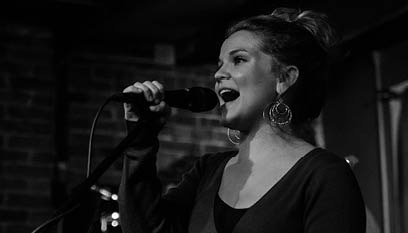
SGT: What is your primary instrument you perform with, and is that the instrument you use to compose?
Nolan: Guitar. Yep.
Young: I primarily play acoustic guitar, and that is the sole instrument I use for writing.
Moore: Guitar is the definite home-base.
Ott: Always write on acoustic guitar. Play live with acoustic too.
Dailey: Guitar. Yes. Guitar mostly but not always.
Blowen: Keyboards are my primary instrument. While I play a lot of organ and synth live, I usually write using a more percussive instrument like acoustic or electric piano.
Boutwell: I try to write on any instrument I come in contact with, but the primary performance and songwriting tool is the guitar. I’ve had good luck composing on piano/organ, but lately it is pretty much been strictly guitar just because I don’t have to think too much while I play it.
Seely: I write almost exclusively using a guitar. However, I have written a few songs using a mandolin as the primary instrument. When I lived in Zambia, I bought a cheap electric piano and wrote several songs using that as a primary instrument. That was actually a lot of fun. It totally changed the landscape for me, so to speak.
Margolin: I started songwriting and performing years ago on piano, but I now prefer acoustic guitar.
Brocks: We recently got a piano, which was my first instrument, and I’m looking forward to trying my hand at writing on the piano [instead of guitar] — I’m interested to see what will happen.
England: I now primarily play electric with the band, but for the most part, I can be found with an acoustic guitar in my hands. I do enjoy tinkering with other instruments and I feel a lot of times I can develop song ideas by just noodling. I wrote “Dark Like Ink” (off Dawn Chorus) on a ukulele my friends gave me for my birthday one year, and then pretty much hung it up and haven’t played it since.
Albee: Keyboards are my primary instrument and that’s where I do a lot of my composing. I also play guitar and all your other garden-variety rock and roll instruments, but probably (see: definitely) with not as much proficiency. Because I am constantly challenging myself on the guitar, that means that I’m out of my comfort zone, so I’m constantly making discoveries and not relying on muscle memory. I like to move around and rediscover various instruments and their distinct energies in order to write new material.
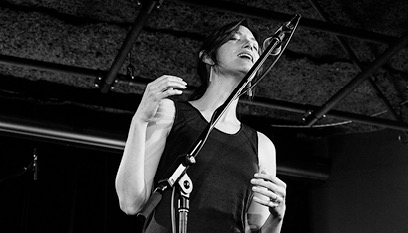
SGT: Is songwriting something you intentionally make time for, like a job, or do you do most of your writing whenever inspiration happens to strike?
Young: I write when inspiration strikes. I’ve tried to make time and sit down and write a song but never end up with a product I like. It’s catching lightning in a jar for me. I generally start and finish a song in one sitting, and it’s generally within 10 minutes. But like I said above I can go months without writing, and then just have a flood of inspiration.
Dailey I do make time for it, but I don’t plan the time. The time happens when the song happens. So I suppose it is more of inspiration thing, but there is work.
Seely: I’ve tried to intentionally set aside time to write and have not been overly successful — I tend to try too hard and things feel contrived and insincere. I seem to have much better luck when the spirit moves me. I have written some of my best songs in ten minutes or less. Sometimes things just fall into place.
Blowen: It’s a combination of both, actually. I frequently get ideas at inopportune times and I’ll end up recording a quick snippet on my phone or jotting down some lyrics. Later, when I have time, I go through it and try to figure out what I was thinking. I have to force myself to sit down and actually “finish” songs, not that any of my songs are ever really finished. I’m still making changes to songs I wrote decades ago. They can always be better.
Ott: I try to write a song once a week or so. I have over a dozen songs that need to be recorded, then 10 or so unfinished songs that need to be finished.
Moore: If I don’t make time for songwriting, I still write songs just not as often. My routine is always changing but I consciously make time to write and work, absolutely. I try to schedule practice time on my instruments as well, but that usually ends up with me writing something. If you wait for the muse you’ll release one album every ten years. The more I write the better my writing gets. I write every morning when I wake up first thing. Sometimes it’s lyrics to a song I was working on the night before, or it’s an object writing exercise, a poem, or a stream of consciousness. I have a hard time though, keeping a routine. If it’s too robotic I get complacent and ideas get stale, so I mix it up, which is why the type of writing I do shifts around.
Nolan: Until a few years ago, music was the way that I made a humble living. Since returning to school and entering the substance abuse field, if I am planning to make music a part of my life at all, I have to schedule it or play at the end of the day.
Boutwell: Definitely both. The balance has shifted over time; in my mid-twenties, I was very disciplined about the work, but I now have a family, so it has been tough to have that same drive to write. I am working on a healthy balance of inspiration and work ethic.
Albee: My creative energy does not work on a schedule, so no, I don’t have a specific time allotted for songwriting. When inspiration strikes, however, I make all the time I need to complete the thought, I’m sure much to my wife’s chagrin.
Brocks: The latter, though it doesn’t work well for me. If I made time for it, like a job, I would write more, have more practice, and just get those writing muscles more in shape. Time, though, is at a premium these days. Darn kids : )
England: Most of my songs come out of practicing, so I won’t say I make time for songwriting so much as I do for practicing.
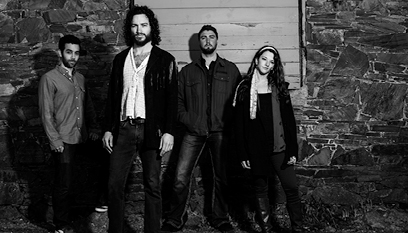
SGT: Is there anything else anyone would like to add on the topic?
Margolin: I have a personal song graveyard where I send song ideas/melodies/riffs. I occasionally return to this graveyard to plug these once abandoned ideas into new songs or to even resurrect a tune that once seemed bad but now seems more palatable or relevant.
England: I’ll just say that it’s SO easy to fall in love with the newest stuff you’ve written, and I’ve learned not to get to smitten with new ideas. Sometimes you have to write a lot of bad – or perhaps incomplete stuff – to get to the gold. But really, nothing is bad if it leads to something good, it’s just a matter of patience and perseverance. I’ll also add that making yourself vulnerable is the key to creating good songs, and art for that matter. This vulnerability isn’t just with others, but also with yourself. Learning to trust yourself and to trust those with whom you perform is essential to good songwriting, but nothing interesting happens if you play it too safe. You’ve gotta put yourself out there. Hope is an essential element to it all, as you never really know if there’s anything beyond the last thing you’ve written.
Moore: Make sure you enjoy the doing. The struggle of finding the fruition of your idea is the joy of this. Your odds of landing a #1 hit single or Rhianna making your song a #1 hit single are pretty rare and unless that’s your career intention and you live in Nashville, New York City, or L.A., it will never happen. So use your imagination and tell a story that’s unique to you. There’s no value in repeating someone else. A favorite filmmaker of mine Jim Jarmusch says, “There are only about six or seven stories you can ever tell, but there are infinite ways to tell those stories.”
Boutwell: 3 minutes, 30 seconds is the absolute perfect song length, hands down. If you can say all you need to in that amount of time, you are on the right track. Bonus points if you can keep a song interesting AND under 3 minutes. Try it — it is harder than you think.
Margolin: When local actor/musician CJ Lewis received a Spotlight Award a couple of years ago for his performance in I Am My Own Wife, he said, “Stay humble and tell stories.” That continues to inspire me.
SGT: Thank you all for taking the time to share your thoughts and songs with us. Readers, be sure to learn more about our panel of experts and check out some of their tunes when you get a chance.
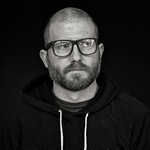
Courtesy Photo
Spencer Albee is a Portland, ME-based songwriter, producer, performer and entertainer who has toured all over and worked with artists ranging from David Bowie to De La Soul. He is currently launching a new TV variety show called The Elephant in the Room with Spencer Albee, rehearsing for his annual Beatles weekend at The State Theatre with Spencer and the Walrus, producing the new Ghost of Paul Revere album and writing material for his own new album to be released fall 2019.
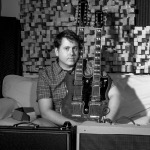
Patrick Boutwell is a songwriter, guitarist, and lead vocalist in the Providence-based band The Brother Kite, who are currently at work on their 5th full length record. Patrick is also the drummer of the band Snowplows, who just wrapped up mixing their 2nd album. In his spare time, he enjoys modifying guitars, building amps, and teaching his 5 year old son Henry how to play the drums.
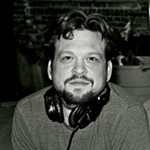
Courtesy Photo
Andrew Blowen has been performing for nearly 30 years as a solo artist and member of several notable New England bands. He is the lead vocalist & keyboard player in One Hand Free and his newest project, A Different Engine, is hard at work writing and recording the follow up to their 2018 debut, “Situation Normal”. He currently lives in Exeter, NH.
Courtney Brocks writes thoughtful, emotionally-charged songs following in the singer-songwriter tradition of Joni Mitchell and Gillian Welch. In addition to performing her own material, Courtney plays with the Seacoast-based band, The Reconstructed. She lives in York, Maine.
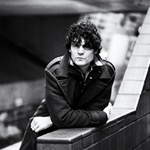
Will Dailey is an acclaimed independent recording and performing artist and artist advocate. He has also shared the stage with Eddie Vedder, Willie Nelson, Roger McGuinn, G Love and Tanya Donelly. His new album, Golden Walker, was just released in June of 2018 and hit #1 on Billboards Northeast Heat seekers. The Boston Herald called the album “a new peak.”
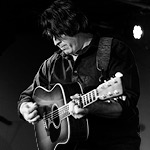
Martin England has written, recorded, and performed his own songs for nearly 40 years. He is the singer/songwriter for The Reconstructed, with which he has released two albums, and another is currently under production. Previously, Martin wrote and performed with Pondering Judd over the course of 15 years and released seven albums. He has also performed as a solo artist and has gigged all over New England and beyond. The Reconstructed’s new album will be released sometime in early 2019.

Elissa Margolin is a singer-songwriter and member of the band, River Sister, from Portsmouth, NH. Her discography includes Love AnyWay (2010), Fine Line Forming (2011), Tangent (2013), PIVOT (2015) and River Sister (2017). Elissa received a Spotlight Award for best singer-songwriter in 2015.
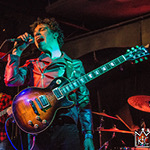
Courtesy Photo
Mike Moore is the bandleader of Boston’s Fire in the Field. The band immediately makes an impression with their furious style of heavy driving rock, pushing the boundaries of rock n’ roll with energy, depth and detail. Known for dangerous improv overlaid with poetry, the music is an honest attack on the soul played with a sense of urgency and unfettered passion. The band’s signature endorphin-releasing, guitar-driven sound has a bluesman’s swagger with a punk heart.
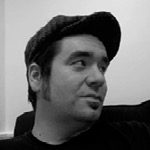
Courtesy Photo
Jon Nolan released 10 albums, and played 1000+ shows through Europe and the US with the poorly named, but pretty decent Americana outfit, Say ZuZu. For ten years he owned and operated a local recording studio, Milltown Recording Co. Jon lives in Newmarket NH with his kickass wife and three kids. He is usually found drinking coffee at the Horseshoe Cafe.
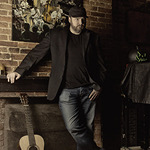
Courtesy Photo
Eric Ott has been writing, recording and performing songs on the Seacoast for over 20 years. Nominated and Winner of several Seacoast Music awards. A lover of pizza and songs of the 70’s.
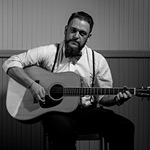
After cutting his teeth playing guitar in the punk rock scene, including two tours of Europe with the Bruisers, Reverend Todd Seely has traveled extensively, having played music across the country and the globe, playing both solo acoustic music and loud, fast rock and roll in the band Bigfoot.

